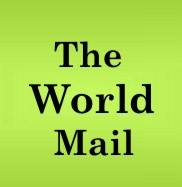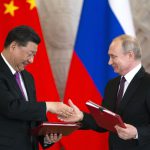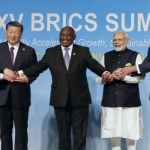JULY 2019 | theworldmail.co.uk
EU braces for Brexiteer Boris Johnson as UK leader
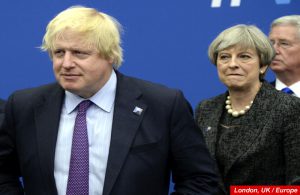
BRUSSELS (AP) — Brussels is bracing for Boris Johnson as a UK Leader and Brexit.
Three decades ago, journalist Boris Johnson wrote stories for London’s Daily Telegraph playing up stereotypes about bumbling bureaucrats in the European Union wasting money and tying up U.K. businesses in red tape — articles the European officials deemed to be so false that they coined the word “Euromyth” to describe them.
Now he is Britain’s prime minister, set to lead the country out of the EU, and Johnson showed last week that little has changed.
Brandishing a kipper at a campaign rally, Johnson alleged the EU had forced fishermen to plastic-wrap the British smoked fish delicacy in a special pillow of ice, pushing up costs and damaging the environment in another example of Brussels’ “regulatory overkill.”
The EU quickly said the allegation was false: The wrapping was a U.K. national regulation outside of the bloc’s scope.
EU Food Safety Commissioner Vytenis Andriukaitis fired back at “Boris” in a tweet noting that “a fish rots from the head down. As potential future PM you need to keep a cool head.”
Johnson’s allegation was similar to what he and other like-minded British journalists in Brussels wrote in the early 1990s. Back then, European officials sought to debunk their stories that said things like all EU manure had to smell the same, or that it would outlaw excessively curved bananas. Johnson even returned to the banana ban theme during the Brexit referendum campaign three years ago.
The EU parliament’s chief Brexit official, Guy Verhofstadt, last month called Johnson “a man who continues to dissemble, exaggerate, and dis-inform the public about Brexit.”
“Reality does not square with Johnson’s ensorcelling combination of false promises, pseudo-patriotism, and foreigner bashing,” he added.
On Tuesday, EU Commission Vice President Frans Timmermans noted that Johnson had been ambivalent about Britain leaving the EU before he threw his weight behind the Brexit campaign.
“I would just suggest that you look at what he has been writing over the years. He took a long time deciding whether he was for or against the EU,” Timmermans said, adding: “The world’s politics is rife with ‘colorful’ people these days, so if you can’t deal with them, there’s not much you could do.”
Despite the disparaging comments on both sides, both Johnson and the EU will now have to work together on Brexit. He has committed to taking Britain out of the EU on Oct. 31 “do or die.” In political terms, that most likely means with or without a deal to soften the economic impact of the divorce
Johnson and his predecessor, Theresa May, are both Conservatives, but he vehemently opposes the EU divorce deal that she struck with the EU. Under the plan, Britain must pay a departure fee of 39 billion pounds ($48 billion), and adhere to its guarantees to avoid a hard customs border on the frontier between EU member Ireland and Northern Ireland, which is part of the U.K.
The EU is holding out the possibility of giving Britain another extension to the Brexit deadline if Johnson wants. But Johnson already has been preparing for withdrawing without a deal, something that financial experts say would be chaotic, costly and damaging to the British economy. Most economists think it would lead to a severe recession as firms face tariffs and other barriers on their exports. Brexit worries have weighed heavily on the British pound, which has fallen this month to near two-year lows.
Johnson has not made it easy for the EU to warmly embrace him.
Along with Nigel Farage of the Brexit Party, Johnson became a political foe of the EU during the Brexit referendum in spring 2016. The populist “Leave” campaign claimed, erroneously, that leaving the bloc would somehow get Britain’s National Health Service an additional 350 million pounds ($429 million) a week. There also were posters warning of a flood of immigrants to Britain from Turkey.
When the Leave side won by a margin of 52% to 48%, Johnson did not gain any friends in Brussels.
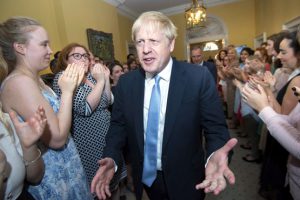
The same year, Johnson compared the EU’s aims to those of Adolf Hitler, arguing the bloc was trying to create a superstate that mirrored the Nazi leader’s attempts to dominate the European continent. At the time, EU Council President Donald Tusk called the comment “absurd.”
When negotiations on the withdrawal from the EU began in 2017, Johnson said the bloc could “go whistle” if it wanted a big exit payout from Britain for outstanding debts.
He also claimed his Brexit policy would be “having our cake and eating it.”
Tusk quickly retorted: “I propose a simple experiment. Buy a cake, eat it, and see if it is still there on the plate.”
____
Newsroom | theworldmail.co.uk
Source/Contribution/Photo Credit Associated Press
